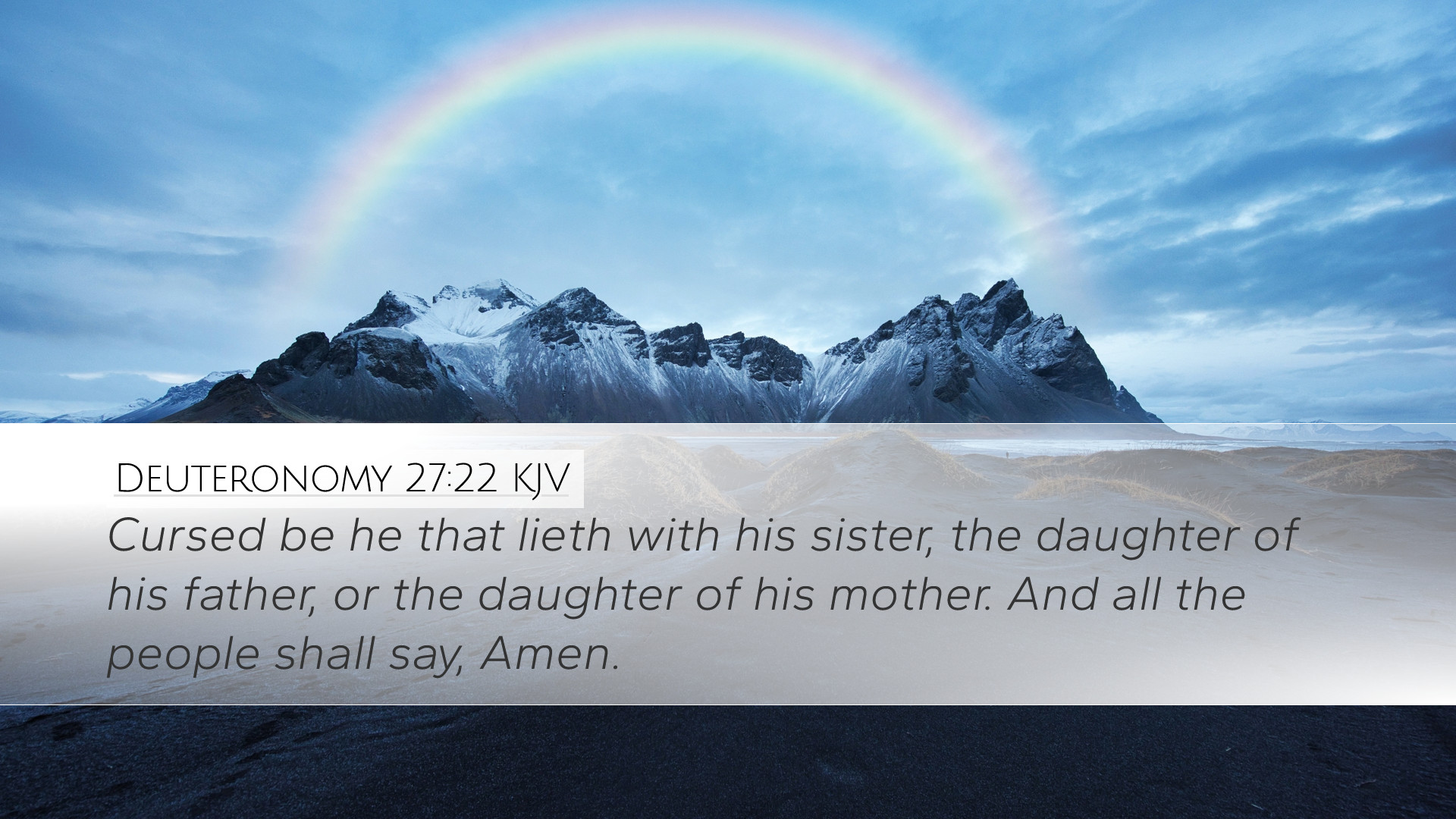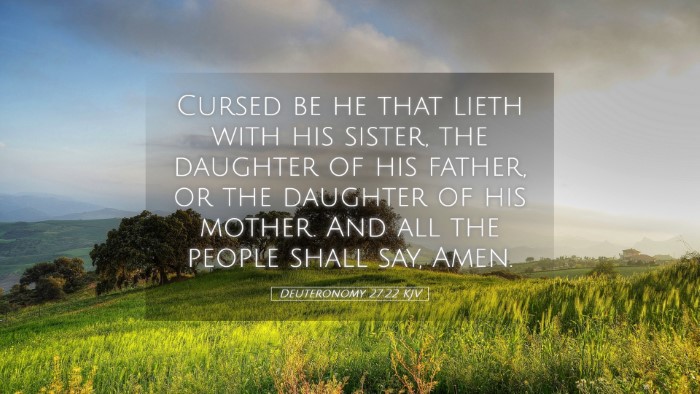Commentary on Deuteronomy 27:22
Bible Verse: "Cursed be he that lieth with his sister, the daughter of his father, or the daughter of his mother. And all the people shall say, Amen."
This verse falls within a larger framework of laws that Moses delivers to the Israelites as they prepare to enter the Promised Land. It specifically addresses the heinous nature of certain sexual offenses, particularly incest, underscoring the seriousness with which God views familial relationships.
Contextual Background
The verse is part of a series of curses that the Israelites were to proclaim as they stood on Mount Ebal and Mount Gerizim. By declaring these curses, the people affirmed their commitment to adhere to the laws of God, recognizing the consequences of disobedience.
Theological Insights
1. The Sanctity of Family Relationships:
In addressing incest, this verse highlights the sanctity of family relationships. As articulated by Adam Clarke, the family unit is divinely ordained, and any sexual union that violates the sacredness of familial bonds incurs God’s vehement condemnation. This principle reflects God's design for human relationships, underscoring the importance of maintaining ethical boundaries.
2. The Concept of Curse:
The inclusion of a curse provides a stark warning about the serious repercussions of sin. Matthew Henry explains that curses are not arbitrary but serve as divine sanctions against transgressions that harm both individuals and the community. The call for all to affirm the curse by saying "Amen" signifies the collective responsibility of the community to uphold divine law.
Cultural and Historical Context
In the ancient Near East, familial relations were often embedded in broader social and legal frameworks. The laws against incest were not unique to Israel but were common in various cultures, reflecting a universal recognition of the potential chaos and moral decay that could arise from such relationships.
Application for Today
This verse speaks powerfully into contemporary discussions about sexual ethics, family integrity, and community standards. The moral implications of incest are still relevant, prompting pastoral reflection on the importance of maintaining healthy boundaries within family systems. Albert Barnes emphasizes that understanding these laws can cultivate a profound respect for God's ordinations regarding human relationships.
Pastoral Insights:
- Moral Teaching: Pastors can utilize this verse to teach about the importance of sexual purity and the need for accountability within the church community.
- Community Responsibility: The communal aspect of the curse serves to remind contemporary believers of their role in maintaining moral standards within their faith communities.
- God’s Justice: Reflecting on the curses attributed to disobedience reinforces the belief that God is just and that there are consequences for sin.
Conclusion
Deuteronomy 27:22 stands as a timeless reminder of the sacredness of family and the serious nature of violating divine commandments. Through the insights gleaned from public domain commentaries, the verse encourages both theological reflection and practical application in navigating moral issues in the modern world.
Final Thought: As we engage with this scripture, may we be reminded of God's desire for holiness within our lives and communities, and may we choose to honor the sacred nature of the family structure He has established.


